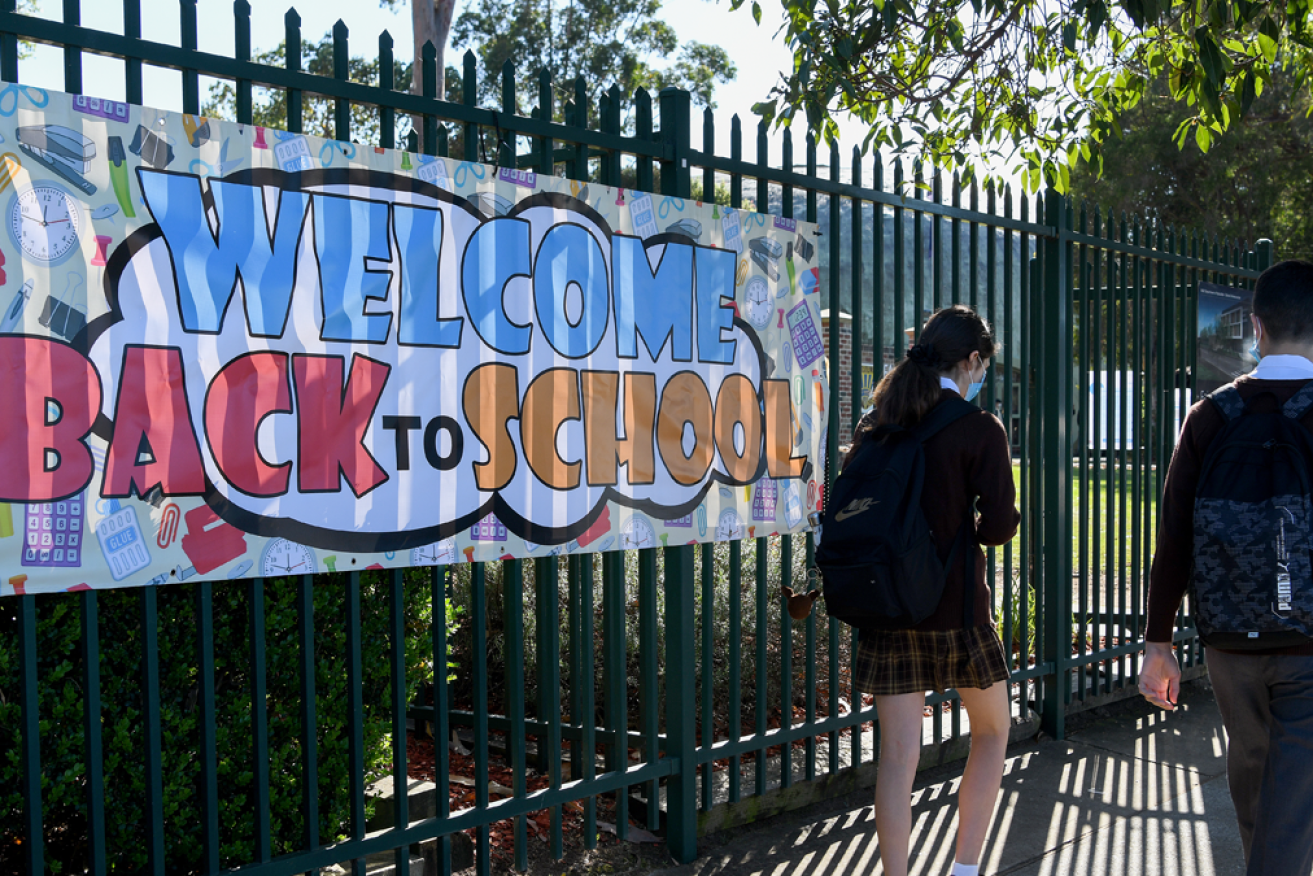Teachers want more rapid antigen tests so schools can reopen with face-to-face learning


Many schools are preparing to return with face-to-face learning, but not every state will follow the same guidelines. Photo: AAP
As schools prepare to reopen in late January, teachers and health experts are calling on the government to ensure face-to-face learning can go ahead safely.
Providing free rapid antigen tests for school staff would play a big part in that.
After the national cabinet meeting on Thursday, Scott Morrison stressed “schools open means shops open, schools open means hospitals are open”, but stopped short of explaining what steps would be taken to ensure teachers and students are safe.
Teachers – many of whom also want schools to stay open – say this isn’t enough.
“We have no sense from the PM’s announcement that education is actually a priority,” Australian Education Union president Correna Haythorpe told The New Daily.
Morrison disappoints
“We were very disappointed in the commentary from his speech, where he essentially linked up the need to be back to school to absenteeism in the workforce,” Ms Haythorpe said.
“Now, we actually think it should be the fact that our students and children need to have a high-quality education – that should be the priority.”
The union is calling for a national plan to prepare for multiple scenarios.
Queensland and South Australia have announced staggered returns to school, with some students beginning the term with online learning.
Meanwhile, NSW, Victoria and other states remain on track to head back into the classroom as usual.
The national plan should allow for short stints of online learning if need be, Ms Haythorpe said.
It would also make sure staff can be regularly tested for COVID.
Although several parents had personally contacted her and were “incredibly anxious” about the return to the classroom, she believes face-to-face learning can be safe and is essential during these formative years.
Health authorities agree.
Ahead of the national cabinet meeting, 35 leading paediatricians, epidemiologists and mental health professionals and other experts from across Australia signed an open letter to the Prime Minister and state premiers.
In it, they said face-to-face learning to be a priority so children could have a return to normality during their formative years.
One of the authors, Deakin University chair in epidemiology Professor Catherine Bennet, told TND that children are more likely to pick up the virus at home than at school, and that parents shouldn’t worry about sending their kids back.
Infected at home
During the first wave of COVID, school outbreaks tended to stem from transmission away from the classroom.
“A lot of it was about kids being evicted in the community, mainly at home, and then taking the virus to school,” Professor Bennett said.
Then, during the Delta outbreak of mid-2021, children stood out among positive cases simply because they were the main age group that was still unvaccinated.
“We’re not expecting schools to turn into these massive spreader events,” she said. “We still think the chances are that kids still won’t be as efficient at spreading it.”
While many parents may be concerned about a supposed risk to students with face-to-face learning, many are also overlooking the benefit to mental health.
“We’re truncating the [psychological] impact of the disruptions that they’ve had so far,” Professor Bennet said.
The hope is that the government can ensure enough rapid antigen tests for teachers to render Omicron a logistical issue, rather than a heath issue.
“We would hope to be back face to face at the beginning of the return to school period,” Ms Haythorpe said.
“But we also recognise that there might be significant staff shortages in terms of people being sick or taking care of their family members.”








